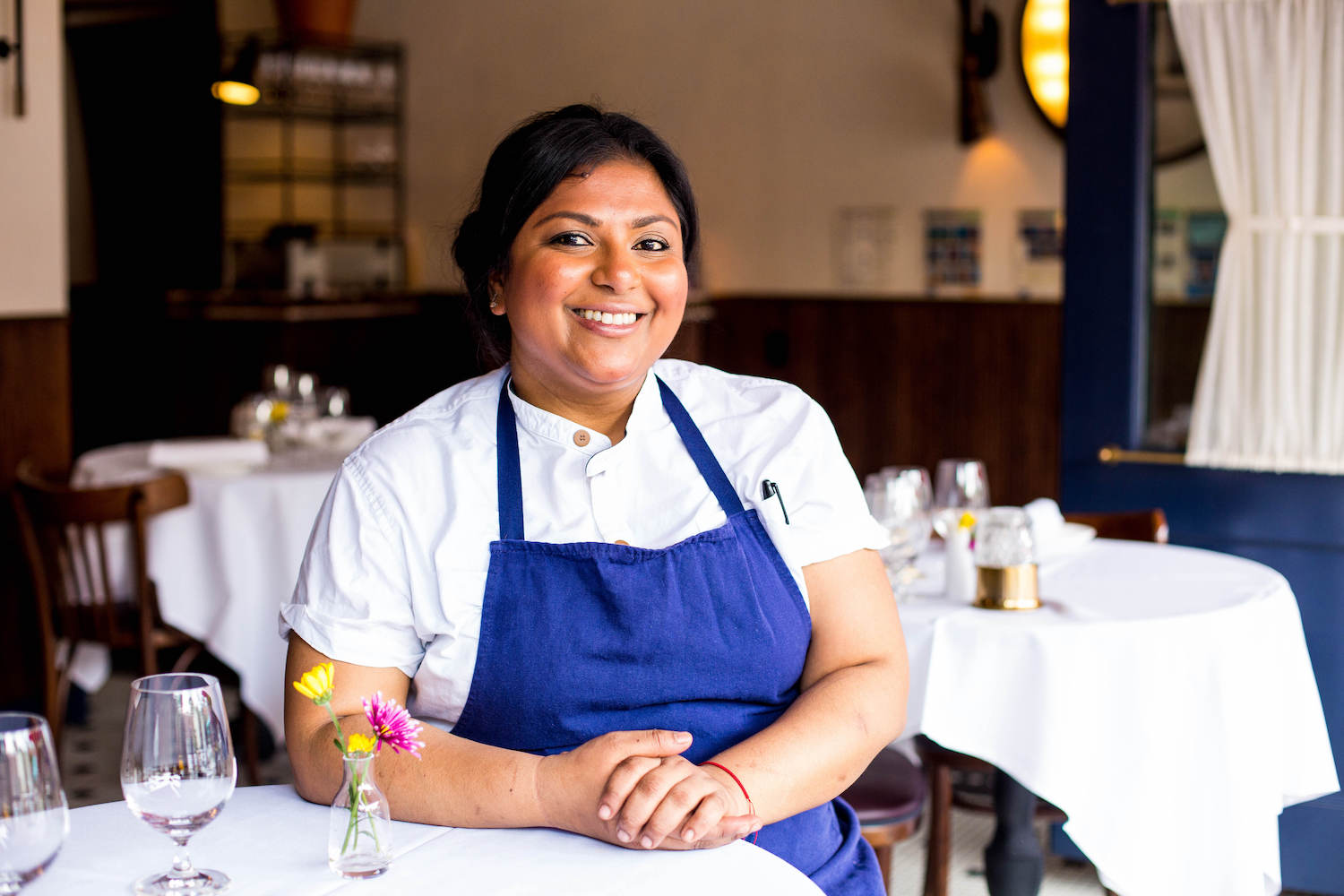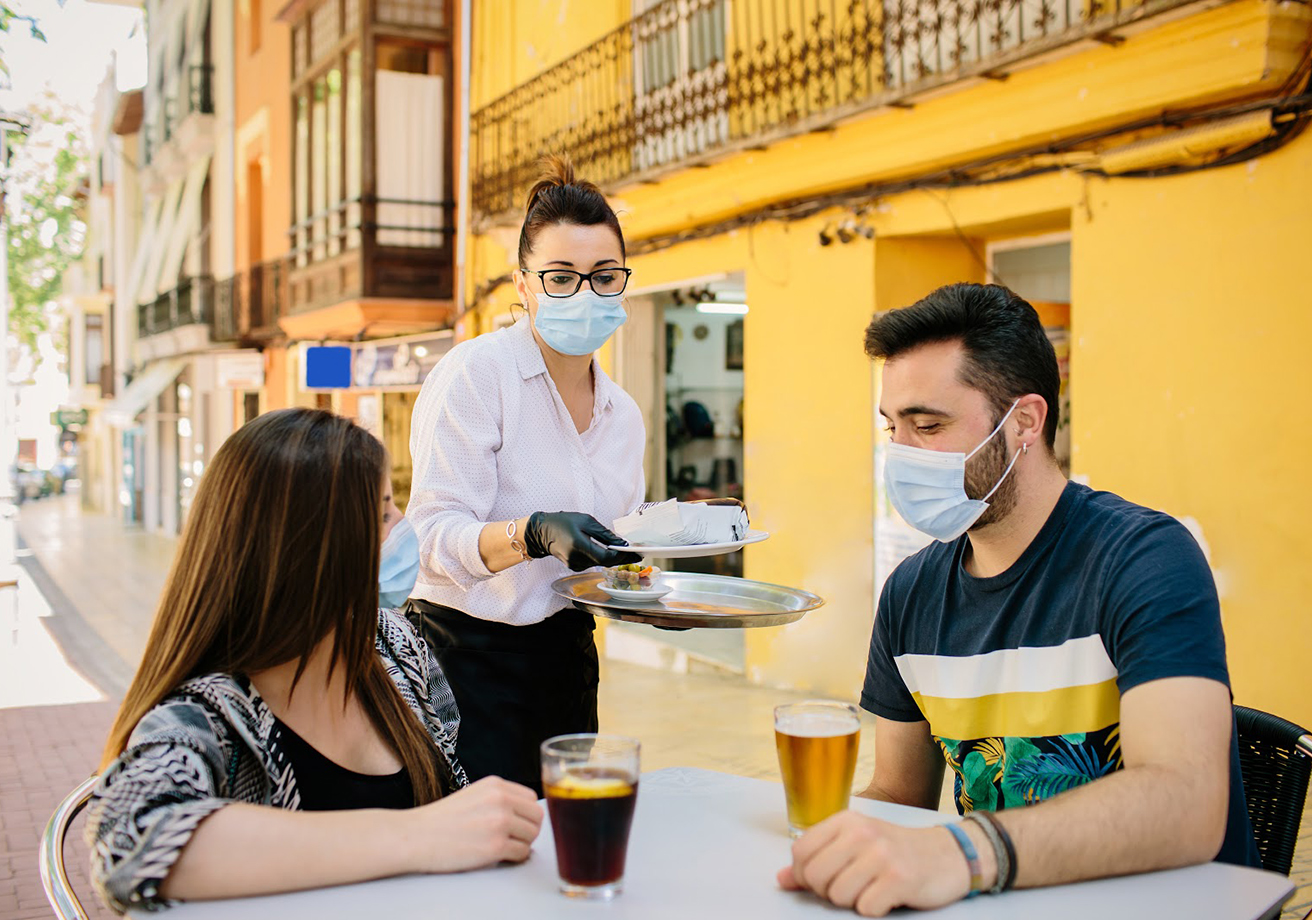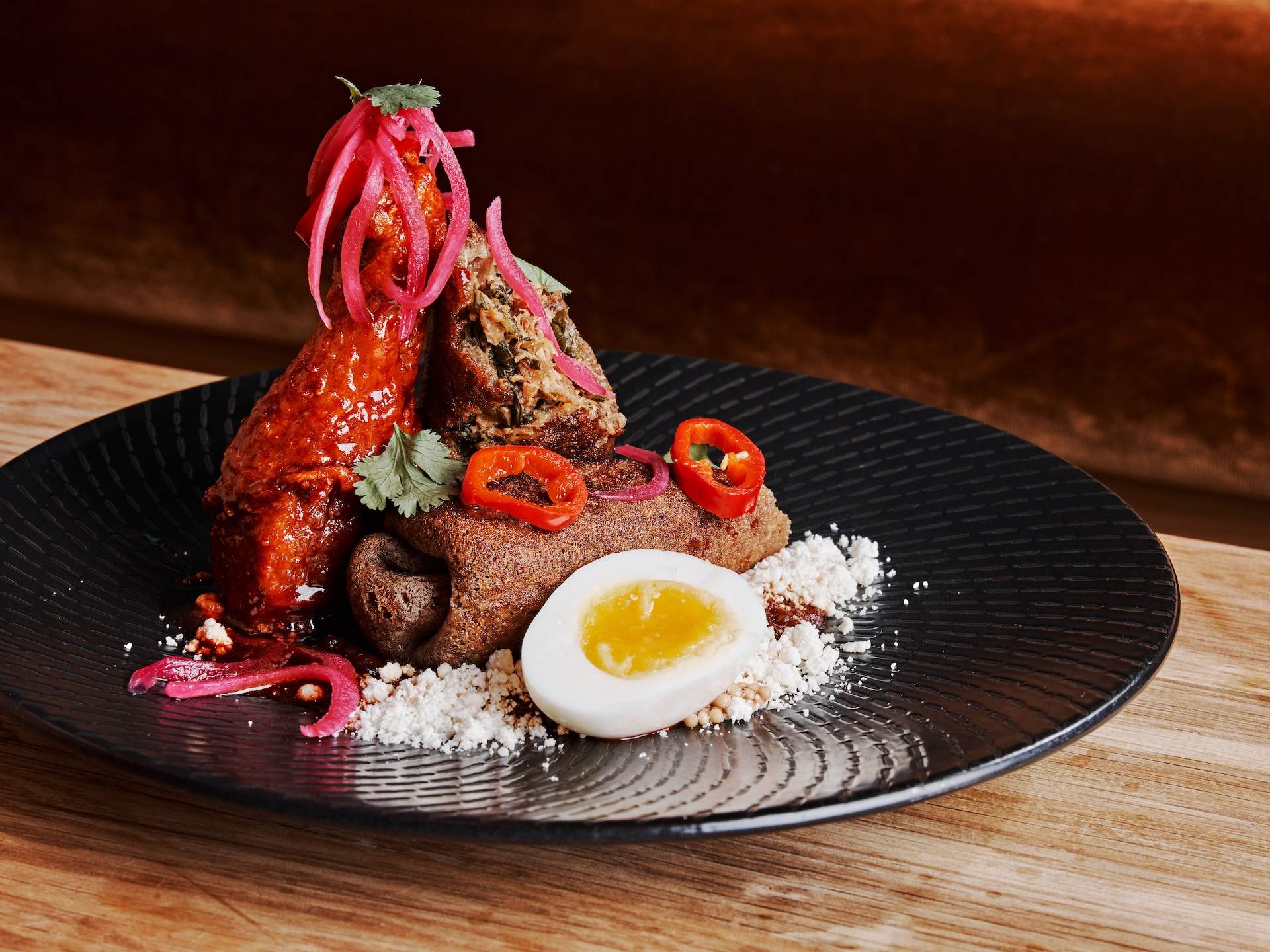Neighbors feeding neighbors. Sustainable practices. Commitment to equity. After the pandemic raised questions about what the future of dining might look like, restaurants have begun to answer in practice — and at The Loyal, New York City’s West Village bistro, the future looks bright.
For The Loyal, reopening isn’t just about opening again but opening anew, with new perspectives that center diversity and inclusion. That all starts with female senior management, including the new chef de cuisine, Nicole Gajadhar, and sommelier Amy Racine, whose respective menus celebrate lesser-heard voices in the restaurant world.
“Highlighting female and BIPOC producers on our menu is defining what American dining is,” Gajadhar says. “This is the right step forward to sustaining our industry. It helps to narrate the ethos of the food we create.”
Gajadhar hails from Trinidad, where she learned to cook on her grandparents’ farm as they reared, planted, grew, harvested, and created meals from their surroundings. Inspired by their work, Gajadhar’s food refers back to culture, sustainability, and seasonality, with a bit of nostalgia. To The Loyal’s bistro classics (think Caesar salad and steak au poivre), she’s added a sweet potato curry with charred yams and lily bulbs, plus a peak spring pea leaf orecchiette with fava-walnut pesto.
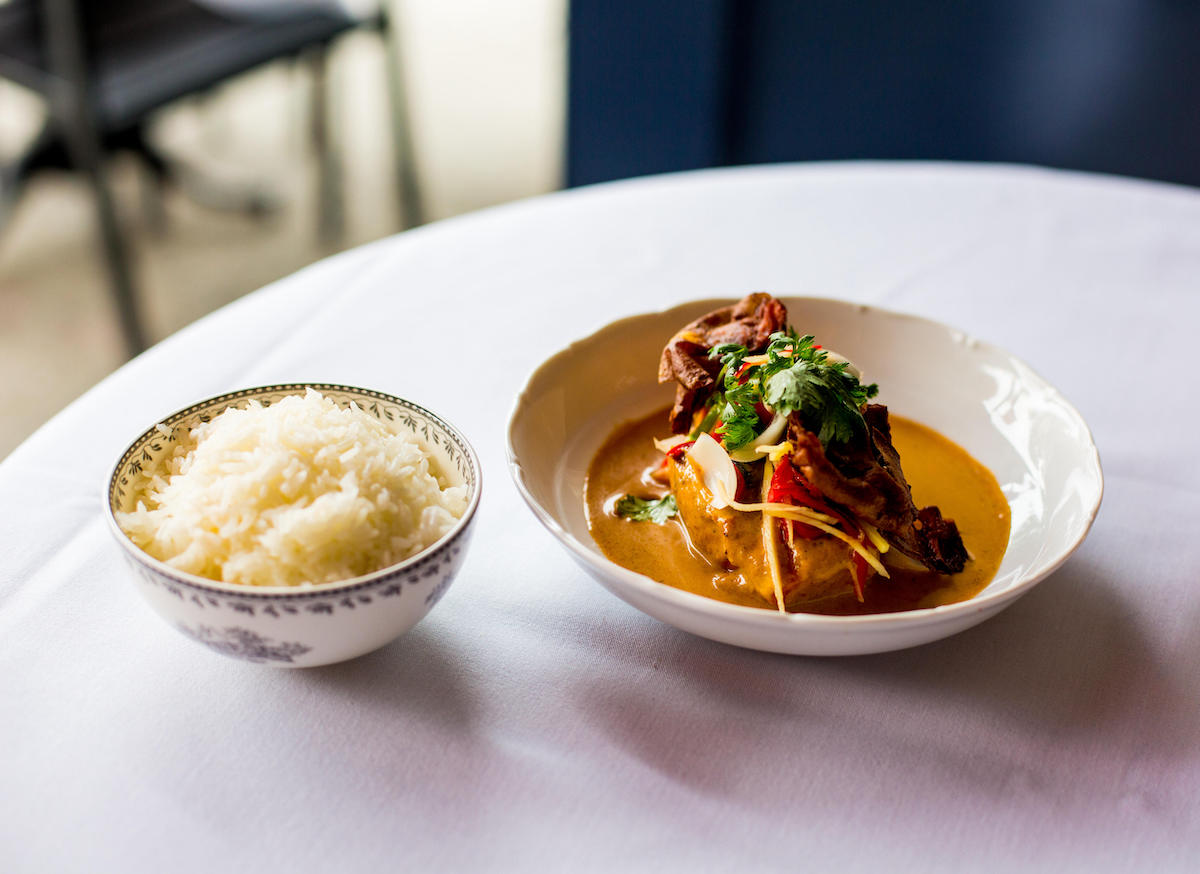
It’s no coincidence that some of Gajadhar’s most beloved dishes place vegetables center stage; she cooked in traditional meat and seafood kitchens before becoming chef at vegan and vegetarian restaurant Nix (like The Loyal, Nix is owned by chef John Fraser). For her, it was a step toward a more sustainable, healthier future.
“We take a very holistic, 360-degree view of sustainability that pervades the entire operation,” Gajadhar says. “It is about both sustaining the planet and sustaining our team. For this team, sustainable practices start in many areas: food, drink, and hospitable thinking.”
The ethos of “hospitable thinking” touches every aspect of operations: supporting small farms and producers, participating in upcycling and no-waste programs, and sustaining a healthy work culture. With the current staffing shortage in the restaurant industry, chefs are rethinking both how they hire and interact with their teams, Gajadhar says. At The Loyal, managers nurture relationships and invest in education to reduce turnover. (Those efforts have paid off: Most of her kitchen team has worked with her for five to 10 years.)
“Chef John reopened The Loyal during the pandemic just so that our staff could work, which says it all,” she adds. “I absolutely adore my team. I want to work harder for them.”
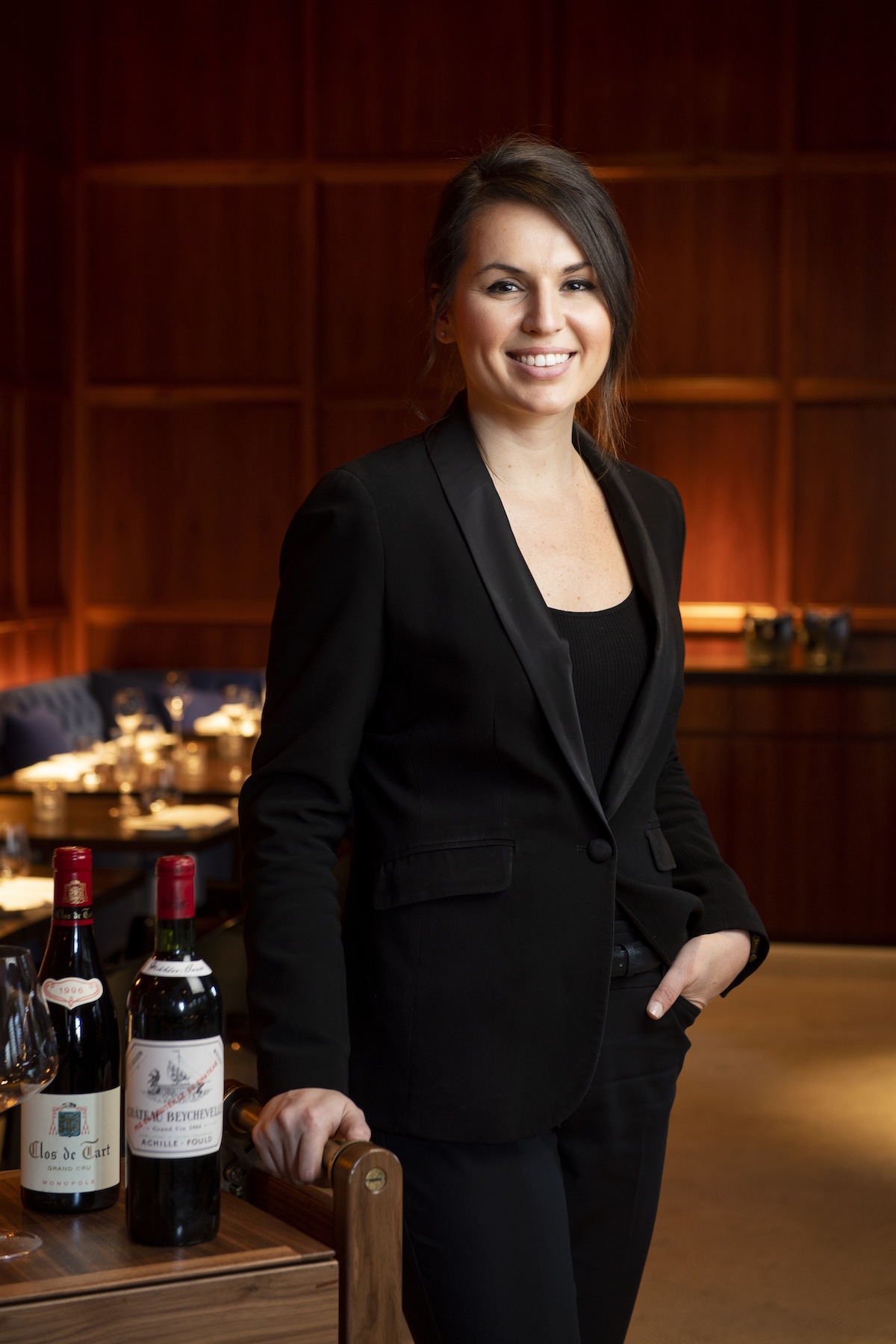
Hospitable thinking also makes its way to the wine list, for which Racine chooses bottles that span the Old World and New, highlighting female and BIPOC producers making organic and natural wines. Krug Champagne sits alongside a Chardonnay from Kitá, the first Native American-owned winery, and a Donna Laura rosato, made by Tuscany-based vintner Lia Tolaini Banville.
During the pandemic, The Loyal essentially transformed into a wine shop, and Racine had the opportunity to learn what diners were shopping for. “We found that our guests were really interested in wines from diverse producers, as well as those using eco-friendly practices. We are always inspired to tell the moving stories behind the bottles,” Racine says.
Gajadhar sees a diverse wine list as a teachable moment, demonstrating the range of talents and approaches in food and wine. Its presence “changes the dynamic of how we see the world,” she says.
That nurturing philosophy also extends beyond the restaurant to the surrounding community. Gajadhar has lived in the West Village for more then 16 years and, like many residents, was heartbroken to see some of her favorite businesses shutter during the pandemic. With the vaccine, though, she sees New York City entering a new moment as new restaurants open and others come back, boosting the economy and bringing more diversity to the community. Diners want to support restaurants and each other for getting through the pandemic, ushering in a celebratory spirit.
“The West Village is becoming freer and livelier,” she says. “The growth of new concepts is changing how we socialize. There are wonderful stories behind these new spaces that are bringing communities together. With the reopenings and rebirth of the city, I feel there is a sense of solace.”
Tried them all? Check out other options here.

